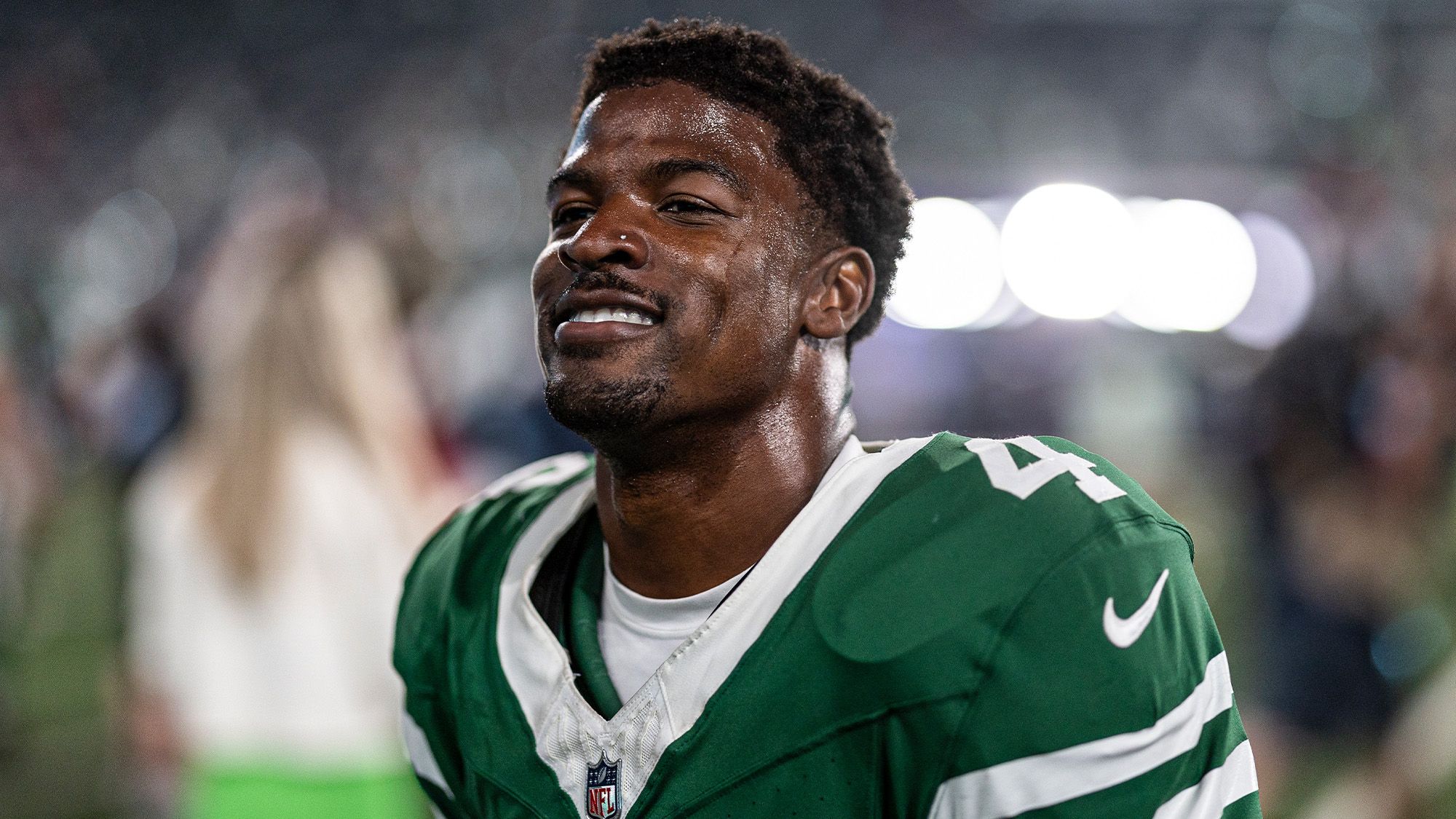As it turns out, the New York Jets did try to retain Bryce Huff. Or at least, Joe Douglas wanted to before Woody Johnson overrode him. That’s likely why Douglas didn’t trade Huff at the 2023 deadline.
But, in the end, Huff walked and the Jets didn’t even receive a compensatory pick for him.
This offseason, another key cog in the Jets’ defense will be a free agent. The team will likely be less interested in re-signing him than they were Huff. But since they did not trade him at the deadline, they must ensure that they end up with some compensation for him.
That player is D.J. Reed.
Reed has been one of the better No. 2 cornerbacks in the NFL for the last number of seasons. His three-year, $33 million contract was the best free-agent signing Douglas made (and maybe even the best move he ever made, period).
Reed always seemed all but gone after this season. Even when asked before the season about staying with the Jets, he said he always understood he would hit free agency. From his tone, it sounded like he did not expect to re-sign with New York.
Now, both sides likely want to move on. The Jets are highly unlikely to be contenders in 2025. Reed will want to move on from the mess this team has been in 2024.
Perhaps the Jets can simply let him go and not sign other free agents in his tier. That would likely net them a fourth-round compensatory pick in 2026. This may be possible if the Jets choose to be very conservative in free agency. Compensatory picks are awarded based on the contracts of the players gained and lost in free agency (subject to specific restrictions), so if the Jets lose Reed and don’t sign an equivalent player, that fourth-rounder is within easy reach.
But more likely than not, the Jets will sign that one big free agent who will cancel out Reed. In that case, Reed will have left for nothing, and not trading him at the deadline will once again be crippling.
The Jets did not want to place the franchise tag on Huff because it was higher than the contract they would have offered him. The tag amount would have been $21.3 million, and in the end, Huff got $17 million per year in free agency.
In Reed’s case, the projected franchise tag is $20.4 million. That’s still a hefty price, as it would be the fourth-highest average annual value among current cornerback contracts.
However, Reed may seek a contract number not too far off from there. He may use the 49ers’ Deommodore Lenoir as a comparison. Lenoir is the 49ers’ No. 2 cornerback, and his contract AAV is $18 million. While Lenoir is 25 and Reed is 28, Reed could still make that case.
Therefore, is it not worth placing the tag on Reed? At worst, the Jets would have him for one more year at a little above market value. And, more likely, some team would trade for him and renegotiate his contract to a more appropriate AAV. The Jets may even be able to get a 2025 draft pick in return rather than a 2026 comp pick.
Yes, holding that contract on the cap would be difficult, but it shouldn’t be too hard to get a trade done fairly quickly.
Will the Jets do this? Unlikely, just as it was with Huff. But they should definitely consider it.

